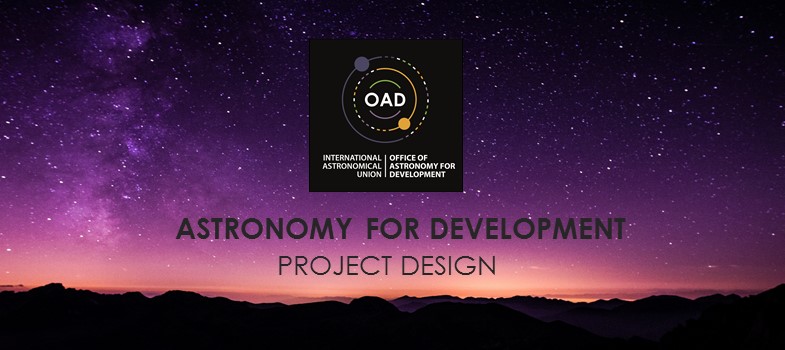Theme 3: Knowledge and Skills for Development
A brief description of the Flagship program on Knowledge and Skills for Development
This flagship aims to make use of knowledge and skills used in astronomy, such as programming, data handling, data analysis and machine learning, as well as infrastructure such as cloud computing platforms, to advance development objectives through either the teaching or application of skills. This may be executed in the form of educational programmes such as advanced schools/workshops, or in the form of hackathons/competitions which bring together skilled professionals or students with the goal of solving development issues using such skills.
The implementation of such schools/workshops could lead to an increase in the number of students/individuals who are confident in applying the skills learned to their own studies, research or careers, as well as motivated to further the skills learned, leading to an enhanced employability and greater contribution to the economy. It could also lead to a growing number of cross disciplinary and cross sector data intensive projects, further partnerships with development and data science organisations and wider use of infrastructure such as high performance and cloud computing, especially in contexts where such tools are used infrequently and could be beneficial.
N.B. Educational or outreach programmes at the schooling level, as well as general astro teacher training programmes will fall under the scope of the IAU Office for Astronomy Education (OAE http://www.haus-der-astronomie.de/OAE) and the IAU Office for Astronomy Outreach (OAO https://www.iau.org/public/oao/).
Expected Outputs
- Example projects for in-person or virtual schools, workshops or hackathon events at which participants gain transferable skills such as programming, data analysis, machine learning and deep learning techniques.
- Best practice guidelines for the implementation of such events.
- Reusable and openly accessible teaching or learning resources and assessments.
- A searchable database of data science tools & teaching methods (refer to the OAD Data Science Portal)
- Use of the OAD volunteer portal to either solve challenges using data science or to develop hackathon projects.
Key steps in carrying out this flagship
- Review and consolidate existing initiatives, resources and projects.
- Produce a searchable database of programming/data science resources and teaching materials linked to astronomy.
- Identify platforms for hosting online events.
- Develop example projects/packages for both in-person and online implementations. These would include best practice guidelines for various models for different contexts, e.g. for hackathons held in countries with limited resources.
- Secure funding for the global rollout of such events.
- Partner with development organisations to identify development needs which could be addressed using data science skills.
- Volunteer participation: Utilise the volunteer portal to enlist skilled individuals who will source data, solve/tackle development challenges using data science or design hackathons which target a development need.
- Partner with data science organisations such as DataKind (https://www.datakind.org/) and research groups such as Data Science for Social Impact (https://dsfsi.github.io/) to identify potential projects or individuals who can assist in developing solutions.
Resources and Example Applications of Data Science
- OAD Astronomy & Data Science Toolkit https://datascience.astro4dev.org/
- DARA (Development in Africa with Radio Astronomy) Big Data hackathon projects https://github.com/darabigdata
- WHO Health Alert developed in collaboration with Praekelt.Org, using Turn machine learning technology https://www.who.int/news-room/feature-stories/detail/who-health-alert-brings-covid-19-facts-to-billions-via-whatsapp
- Machine learning algorithms developed for the analysis of galaxies applied to cancer research https://www.nasa.gov/feature/jpl/fighting-cancer-with-space-research
- Global Pulse – the UN initiative on big data and artificial intelligence for development https://www.unglobalpulse.org/library
- Hackathons and data collation efforts which aim to tackle the COVID-19 pandemic https://covid-global-hackathon.devpost.com/ https://www.kaggle.com/allen-institute-for-ai/CORD-19-research-challenge
- Initiatives by Zindi to bring together data scientists in Africa to solve local issues https://techcrunch.com/2019/08/09/zindi-rallies-africas-data-scientists-to-crowd-solve-local-problems/
- The development of machine translation models for African languages by the Masakhane project https://www.masakhane.io/
